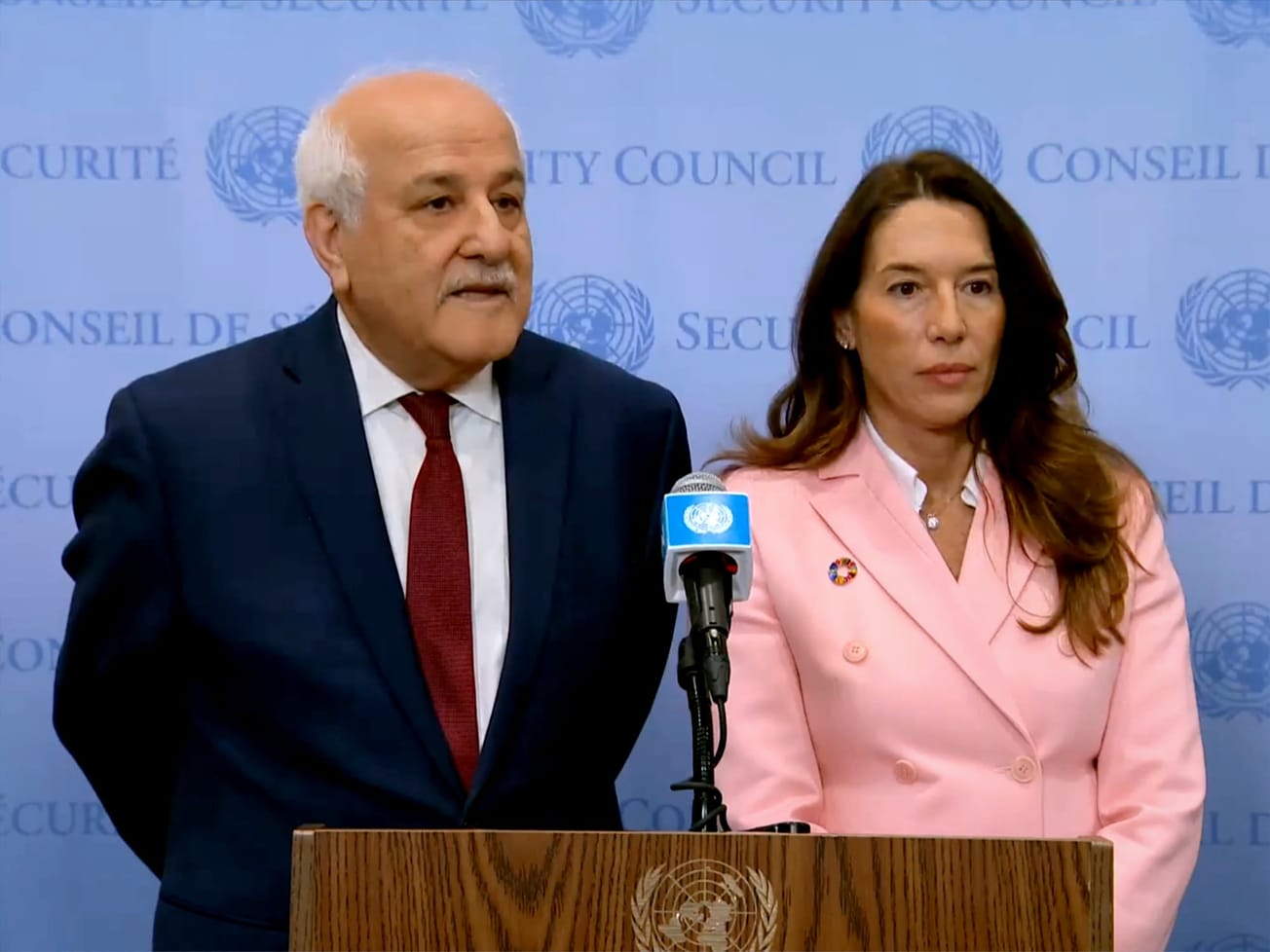The U.N. General Assembly voted overwhelmingly to give Palestine new "rights and privileges" as an interim step toward making it a full member.
The 143-9 vote with 25 abstentions upgrades Palestine's rights at the world body as an observer state without offering full membership. The nine nations that voted against the resolution were Argentina, Czechia, Hungary, Israel, Micronesia, Nauru, Palau, Papua New Guinea and the United States.







